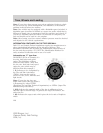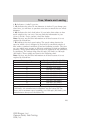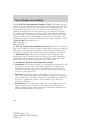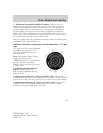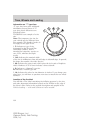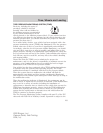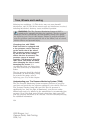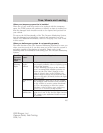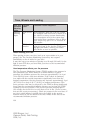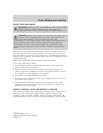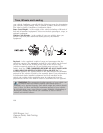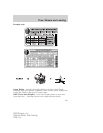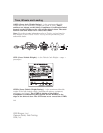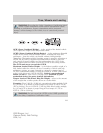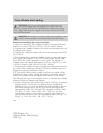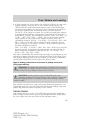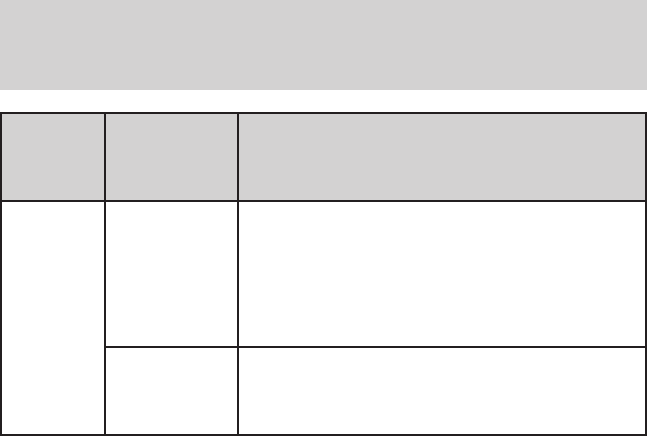
Low Tire
Pressure
Warning
Light
Possible
cause
Customer Action Required
Flashing
Warning
Light
Spare tire in
use
Your temporary spare tire is in use. Repair
the damaged road wheel and re-mount it on
the vehicle to restore system functionality.
For a description of how the system func-
tions under these conditions, refer to When
your temporary spare tire is installed in
this section.
TPMS mal-
function
If your tires are properly inflated and your
spare tire is not in use and the TPMS warn-
ing light still flashes, contact your autho-
rized dealer as soon as possible.
When inflating your tires
When putting air into your tires (such as at a gas station or in your
garage), the Tire Pressure Monitoring System may not respond
immediately to the air added to your tires.
It may take up to two minutes of driving over 20 mph (32 km/h) for the
light to turn OFF after you have filled your tires to the recommended
inflation pressure.
How temperature affects your tire pressure
The Tire Pressure Monitoring System (TPMS) monitors tire pressure in
each pneumatic tire. While driving in a normal manner, a typical
passenger tire inflation pressure may increase approximately 2 to 4 psi
(14 to 28 kPa) from a cold start situation. If the vehicle is stationary
over night with the outside temperature significantly lower than the
daytime temperature, the tire pressure may decrease approximately 3 psi
(20.7 kPa) for a drop of 30° F (16.6°C) in ambient temperature. This
lower pressure value may be detected by the TPMS as being significantly
lower than the recommended inflation pressure and activate the TPMS
warning for low tire pressure. If the low tire pressure warning light is
ON, visually check each tire to verify that no tire is flat. (If one or more
tires are flat, repair as necessary.) Check air pressure in the road tires. If
any tire is under-inflated, carefully drive the vehicle to the nearest
location where air can be added to the tires. Inflate all the tires to the
recommended inflation pressure.
2009 Ranger (ran)
Owners Guide, 2nd Printing
USA (fus)
Tires, Wheels and Loading
136



